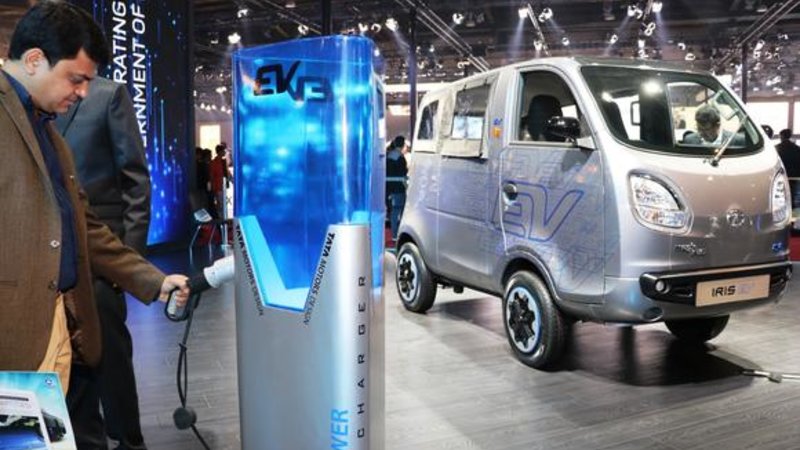Prime Minister Narendra Modi's government, which in 2016 announced an ambitious plan to have an all-electric vehicle fleet by 2030 to lower fuel imports and pollution, now appears headed toward a more realistic target of 30% e-cars by that time. However, doubts remain about the likely success of the program in the absence of a clear-cut policy framework.
"We must ensure that by 2030, 30% of our vehicles run on electricity, to leave behind a better world for our grandchildren," said Power Minister R.K. Singh.
Within 15-20 days, Singh said, his ministry is expected to unveil a policy and regulations for power distributors and those setting up charging infrastructure for electric vehicles. "The broad components of the policy will be: Who can set it [EV charging station] up? Who can bid it out? What will be the methodology for fixing tariffs?"
Singh's remarks came on Wednesday at the launch of the national e-mobility program, to be implemented by state-run company Energy Efficiency Services (EESL). They come less than a month after Nitin Gadkari, Minister for Road Transport and Highways, said there was no need for an EV policy, in remarks seen at the time as a reversal of the government's plans to produce a comprehensive electric vehicle policy.
Singh's reference to the 30% EV goal, as against the 100% figure outlined by the government earlier, is a "considerable dilution," Deepesh Rathore, London-based director of auto consultancy Emerging Markets Automotive Advisors, told the Nikkei Asian Review.
"I thought even the 100% [goal] was realistic if [India] had worked on that," he said, adding that the government has not really done anything so far apart from making statements.
"The industry's concern is [relating to] the charging infrastructure and the second one is whether the EV that it will make will be profitable. EV profitability is something the industry is working on. What it needs is charging infrastructure and a clear-cut policy direction ... but the government has sadly not delivered."
Achieving a 30% EV fleet is going to be even more difficult than the 100% target, said Rathore. "You are not actually telling people to buy EVs [only], you are saying that you may also buy EVs. Why would someone take that [EV] option when that technology is not completely proved, [as against] the technology which is 100 years old and running very well across the world."
He said the Indian government was not really ready to introduce a comprehensive EV policy. "They are not ready today, I don't think they would be ready in six months."
Manufacturers have also voiced concerns over the lack of a clear policy roadmap, including on charging infrastructure. When the government earlier pushed for a 100% electric fleet by 2030, the Society of Indian Automobile Manufacturers (SIAM) recommended a 40% target instead, with 2047, the centennial of India's independence from British rule, a better target for achieving the 100% target.






